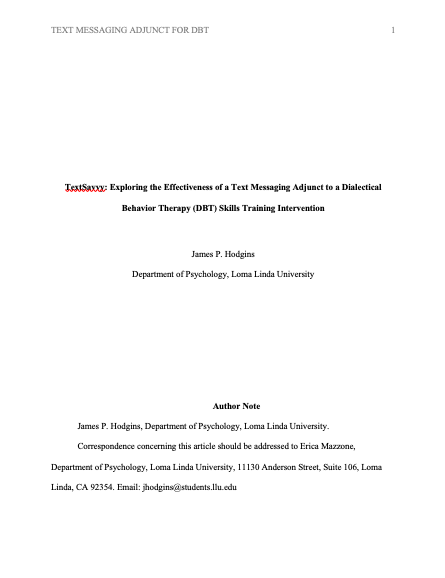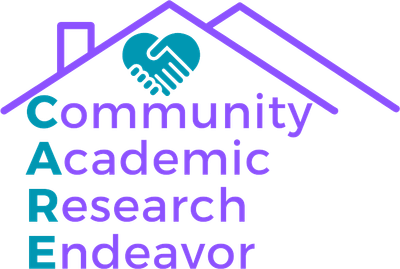TextSavvy: Exploring the Effectiveness of a Text Messaging Adjunct to a Dialectical Behavior Therapy (DBT) Skills Training Intervention

Dialectical Behavioral Therapy (DBT) has emerged as an evidence-based treatment for several adolescent mental health concerns, including as a preventative approach for at-risk youth. Low-cost yet ubiquitous technologies such as automated text messaging also have indicated potential to further support youth mental health outcomes and increase treatment engagement. However, there is a lack of empirical work assessing the use of automated text messaging as an adjunct to DBT treatments. The purpose of this study was to evaluate the effectiveness of a text messaging adjunct of a tier-2 DBT skills treatment. This quasi-experimental study involved the delivery of twice-daily, automated, psychoeducational and supportive text messages over a six-week DBT skills training program. Participants included 76 at-risk adolescents from a continuation high school in an underserved community, divided into one group who received text messages during the intervention (n=37) and a historical control group who received the intervention only (n=39). Data were collected on attendance, perceived learning, DBT skill usage, and clinical outcomes using standardized measures. The addition of text messaging may have significantly improved session attendance (t[73] = 2.53, p < .01) and perceived learning at mid-intervention (p < .05). However, no significant differences were found in DBT skill usage or clinical outcomes. Text messaging may enhance engagement in adolescent mental health interventions by improving attendance and perceived learning. However, its impact on clinical outcomes and skill usage remains equivocal. Further empirical research is necessary to optimize texting as a supportive tool within youth DBT interventions, particularly more rigorous experimental methodologies.



